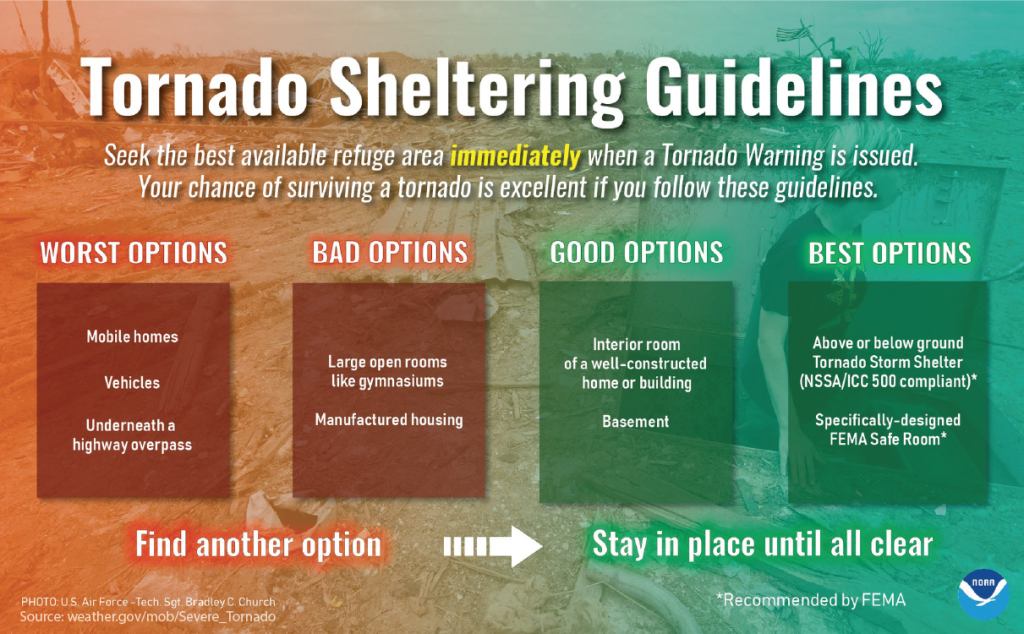
Source: Jimmie Kaska | Civic Media
SULLIVAN, Wis. (Civic Media) – The state of Wisconsin has had a busy year on the tornado front.
National Weather Service officials in the state have confirmed 23 tornadoes so far in 2024, surpassing 2023’s total of 21.
According to the NWS, Wisconsin averages about 23 tornadoes per year.
21 of the 23 tornadoes this year happened in May. The other two were the first-ever recorded tornadoes in Wisconsin in February.
16 of the tornadoes happened on May 21, affecting west-central and southeastern Wisconsin. That’s the largest one-day tornado outbreak in the state since last March.


Three tornadoes on May 26 pushed Wisconsin over last year’s mark of 21. Wisconsin had 28 tornadoes in 2022, 41 in 2021, 20 in 2020, and 28 in 2019 for a five-year average of 28 tornadoes.
Only one person has been hurt in this year’s storms. Nobody has been killed by a tornado in Wisconsin since 2017, when a record-setting EF3 tornado crossed four counties and 83.5 miles in northwestern Wisconsin. That tornado also injured 25 people.
The National Weather Service confirmed a 23rd tornado this year, a May 21st tornado in Marquette County, on Friday.
Tornado Safety

Here are some tips for staying safe during tornado season in Wisconsin from the National Weather Service.
Before a Tornado
- Be Weather-Ready: Check the forecast regularly to see if you’re at risk for tornadoes. Listen to local news or a NOAA Weather Radio to stay informed about tornado watches and warnings. Check the Weather-Ready Nation for tips.
- Sign Up for Notifications: Know how your community sends warnings. Some communities have outdoor sirens. Others depend on media and smart phones to alert residents of severe storms capable of producing tornadoes.
- Create a Communications Plan: Have a family plan that includes an emergency meeting place and related information. If you live in a mobile home or home without a basement, identify a nearby safe building you can get too quickly, such as a church or family member.
- Pick a safe room in your home, such as a basement, storm cellar, or an interior room on the lowest floor with no windows. Check more ideas for your family plan at: https://www.ready.gov/make-a-plan
- Practice Your Plan: Conduct a family severe thunderstorm drill regularly so everyone knows what to do if a tornado is approaching. Make sure all members of your family know to go there when tornado warnings are issued. Don’t forget pets if time allows.
- Prepare Your Home: Consider having your safe room reinforced. You can find plans for reinforcing an interior room to provide better protection on the Federal Emergency Management Agency website.
- Help Your Neighbor: Encourage your loved ones to prepare for the possibility of tornadoes. Take CPR training so you can help if someone is hurt.
During a Tornado
- Stay Weather-Ready: Continue to listen to local news or a NOAA Weather Radio to stay updated about tornado watches and warnings.
- At Your House: If you are in a tornado warning, go to your basement, safe room, or an interior room away from windows. Don’t forget pets if time allows.
- At Your Workplace or School: Follow your tornado drill and proceed to your tornado shelter location quickly and calmly. Stay away from windows and do not go to large open rooms such as cafeterias, gymnasiums, or auditoriums.
- Outside: Seek shelter inside a sturdy building immediately if a tornado is approaching. Sheds and storage facilities are not safe. Neither is a mobile home or tent. If you have time, get to a safe building.
- In a vehicle: Being in a vehicle during a tornado is not safe. The best course of action is to drive to the closest shelter. If you are unable to make it to a safe shelter, either get down in your car and cover your head, or abandon your car and seek shelter in a low lying area such as a ditch or ravine.
After a Tornado
- Stay Informed:Continue to listen to local news or a NOAA Weather Radio to stay updated about tornado watches and warnings. Multiple rounds of thunderstorms capable of producing tornadoes are possible during severe weather outbreaks.
- Contact Your Family and Loved Ones: Let your family and close friends know that you’re okay so they can help spread the word. Text messages or social media are more reliable forms of communication than phone calls.
- Assess the Damage: After the threat for tornadoes has ended, check to see if your property has been damaged. When walking through storm damage, wear long pants, a long-sleeved shirt, and sturdy shoes. Contact local authorities if you see power lines down. Stay out of damaged buildings. Be aware of insurance scammers if your property has been damaged.
- Help Your Neighbor: If you come across people that are injured and you are properly trained, provide first aid to victims if needed until emergency response teams arrive.
Get more safety tips on the National Weather Service website.
Want More Local News?
Civic Media
Civic Media Inc.
The Civic Media App
Put us in your pocket.

